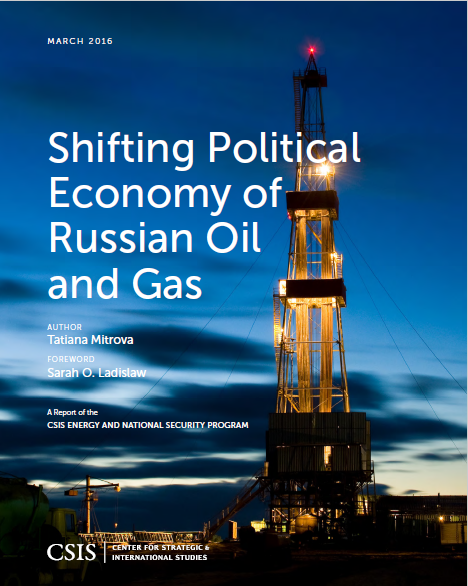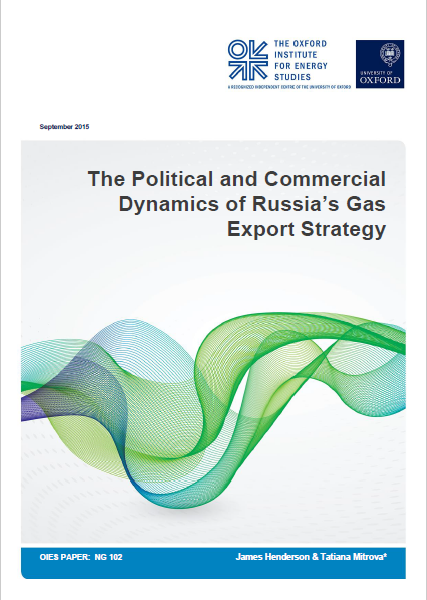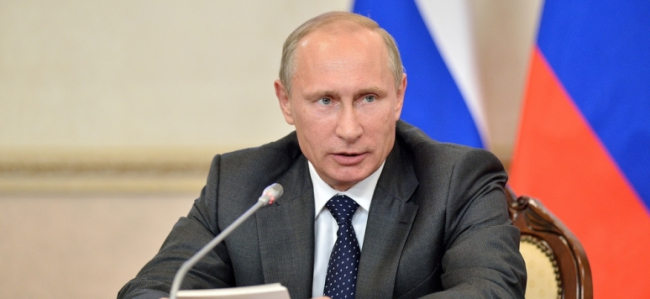
Shifting Political Economy of Russian Oil and Gas
Dramatic changes in the Russian energy strategy and energy-based political alliances are to be expected due to the evolution of the domestic oil and gas market resulting from the economic crisis and sanctions linked to the annexation of Crimea.
“Conservatism” in Russia: Political Tool or Historical Choice?
President Vladimir Putin’s third term of office proceeds under the “conservative shift.” Does this mean that the Russian government has finally opted for conservatism as its official—though not state—ideology, with long-term consequences for both its domestic policy and foreign policies?

The Political and Commercial Dynamics of Russia's Gas Export Strategy
A wide-ranging look at the way Gazprom interacts with an increasingly challenging global gas market for Russia.


Russia's diplomacy is more active than it was ten years ago
Since December 2011 there is a real convergence between the perception of President Vladimir Putin and the perception of Russia, especially, in the Western media.
That leads to several comments. The first is the feeling that there is now a new, much more concentrated power in the Kremlin, and that to some extent leads to the question about the very difficult challenge for Russia to build balanced institutions. And there is the perception that, on this particular point, Russia has not made progress. And this is the main area of concern as seen from outside.
Vladimir Putin turns 60
What are, in your opinion, his main successes during these 60 years?
- Vladimir Putin’s main success is his ability to be elected the President of Russia for two times; he is certainly a leader with a prominent standing in the Russian history. However, the question of whether the third presidency can be regarded as a success or an achievement is still open. The conditions under which the elections were held, especially the political opposition will be a political problem for him and for Russia for the next 6 years. My answer is that the first two elections were definite successes, but I wonder about the third one.

What lies behind Russia's new laws ?
Does the introduction of these laws lead to a more civilized political and cultural discourse in Russia?
- The main stake of these laws does not really deal with the emergence of a more civilized political discourse in Russia. What ultimately lies behind the Duma’s new laws is a mixture of nervousness about a political environment that is wholly unfamiliar, and a belief in the methods of Vladimir Putin’s previous stints as president.
Russian Digital Dualism: Changing Society, Manipulative State
The article studies the effect of the Internet on Russian society in the 2000s, as well as the complex relations between the Internet, groups of digital activists and the manipulative state.
"Digital Kremlin": Power and the Internet in Russia
The Russian Internet, which has undergone considerable development in the last decade, remains subject to constant scrutiny from the Kremlin. Digital technology has posed a challenge to the governance and political legitimacy of the ruling class, which has been anticipated by President Medvedev.
Russia in Latin America: Geopolitical Games in the US's Neighborhood
Russia's policy in Latin America is not a new policy but reflects long-term aspirations to assert itself as a global power and advance the idea of a multipolar world. It is a fundamentally geopolitical approach directed against the US with an economic component, rather than an economic approach to foreign policy with strategic objectives. Moscow's 2008 initiatives in the region reflected enhanced capabilities which are now in decline due to the global economic crisis. The real threat that Moscow poses to the region stems from its weapons sales to Venezuela, which the latter is already using in support of insurgency in Colombia if not elsewhere.
Support independent French research
Ifri, a foundation recognized as being of public utility, relies largely on private donors – companies and individuals – to guarantee its sustainability and intellectual independence. Through their funding, donors help maintain the Institute's position among the world's leading think tanks. By benefiting from an internationally recognized network and expertise, donors refine their understanding of geopolitical risk and its consequences on global politics and the economy. In 2024, Ifri will support more than 70 French and foreign companies and organizations.








